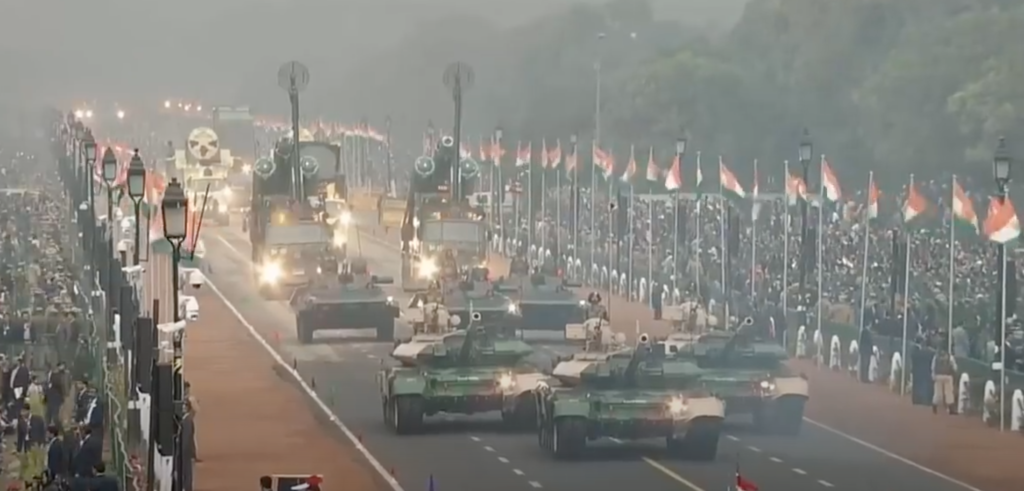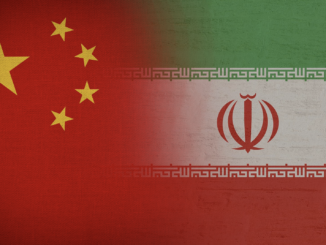
The hostility between India and Pakistan has been dominating the South Asian geopolitical landscape since 1947 – the year when both countries gained independence from British Imperialism. From that moment on, both countries have fought four major wars while minor skirmishes along the highly militarized border are proving to be customary. The list of dissensions is extensive and hotly contested: there is even disagreement on what the major outstanding issues are between the two countries. India categorizes cross border terrorism – allegedly sponsored by the State of Pakistan – as the main irritant in their relations, while the Pakistani side holds an opposite view and classifies the disputed status of the State of Jammu & Kashmir (J&K) as the core concern.
The relations went further downhill after the installation of the right-wing Modi regime in New Delhi during 2014 and thenceforth, India’s policy towards Pakistan underwent some major shifts. The newfangled approach corresponds to Modi’s image of being more assertive and hard-hitting against Pakistan as opposed to the previous governments, which – in the view of Modi’s BJP – lacked the mettle to take decisive actions. The approach, nevertheless, is paradox-ridden and has yet to engender any worthwhile results for India. More worryingly, the erroneous policy has taken South Asia hostage and is blocking any chances of regional cooperation and integration.
After assuming power in 2014, Modi made a few ostensibly cordial gestures towards Pakistan and then followed with the usual pessimism. A series of dubious militant attacks in Indian controlled areas – which were attributed to Pakistan before the preliminary investigations – provided the false-hearted Modi regime with the justification to scrap the already crumbling dialogue process. Even as Pakistan offered to extend cooperation in the investigations, the antics in cordial gestures became more perceptible and bellicosity dominated the rhetoric emanating from India. The delirious Indian officials bragged about venturing to push Pakistan into diplomatic isolation and ruled out any possibilities of negotiations with Pakistan pending (in their view) cross border terrorism in Kashmir does not end. A few years ahead, India’s stratagem to isolate Pakistan has met its preordained dead-end and the situation in Kashmir has turned volatile but from within.
The foreign policy debacle and subsequent embarrassment have their roots in the fallacious and non-realistic approach adopted by Indian policymakers who have been devising policies based on hyper-nationalism and jingoism to achieve some mythical goals; instead of relying on the dispassionate and rational analysis of ground realities to achieve prudently set national goals.
The deep-rooted contradiction in India’s Pakistan policy becomes discernible when it opposes any international mediation to resolve the J&K issue and rigorously terms the dispute as a bilateral issue, but when it comes to talking to Pakistan and solving the issue bilaterally, various antics are employed to evade meaningful dialogue. At this time, India’s policy with regard to Pakistan is virtually pointless; there is an effective stalemate in the relations and the brunt of it is being endured by the whole region.
For a foreign policy analyst, it is not a daunting task to distinguish that the J&K issue predates the so-called terrorism and the root cause of all the tensions between India and Pakistan is the outstanding issue of J&K, not the militancy, which in all its essence is an outcome of the unresolved dispute. In fact, India’s brazen atrocities in the disputed region are the reason that the militancy never ended in J&K and India conveniently labels all the volatility as “cross border terrorism”; thus, exonerating itself from any culpability whatsoever.
The ongoing 8-month-old draconian clampdown in the occupied J&K bear testimony to the fact that the tensions between the Indian colonialists and local population in J&K are by and large independent of any interference from Pakistan and have their own deep cultural and structural roots – a vivid reality which expansionist Indian mindset conveniently overlooks.
J&K has a chequered and troubled history with India: the first PM of India, Mr Nehru intertwined the accession of the state of J&K with India’s secularism; the governments afterwards intertwined the issue with India’s nationalism; the current Hindutva regime has gone one step further and has interlaced Kashmir to their nefarious ambition of making India a “Hindu Rashtra” (Hindu State). The purge of prudence and induction of maniac chauvinism in India’s Kashmir policy form the actual impediments hampering the peaceful resolution of the long-standing dispute.
Under Modi, India made another incongruous shift in its Kashmir policy and started claiming that the part of Kashmir under its control is not disputed anymore and the only disagreement is regarding Pakistan Administered Kashmir (PAK). The unfounded and ludicrous posture suggests that either there is non-seriousness on the Indian side or delusions have overwhelmed the rational thought.
The legal status of the State of J&K being a disputed territory as a whole is very clear as stipulated by various United Nations resolutions and scores of bilateral agreements – which India has been violating barefaced – but Indian policymakers probably live in a parallel universe of their own. In every country, there are people with fallacies in their brains but they largely function as part of the fringe. In India, however, the fringe has been mainstreamed and is obstructing the partaking of rational and sagacious brainboxes into decision-making.
The solution to the dispute of J&K becomes easily within reach once the issue is detached from the false sense of jingoism and viewed through an angle of long-term stability and sustainable peace in South Asia. It is the writing on the wall that as long as J&K remains a contested territory, relations between India and Pakistan cannot be peaceful. Realistically, the issue of J&K is so complicated that it cannot be downgraded to a territorial dispute between two countries. Fundamentally, the issue of J&K is about the future of nearly 20 million people, most of whom do not hold any sentiments of sanguinity towards India; they must be given the right to make a decision about their future for long-term peace in the region.
After illegally scrapping the special status of J&K during August last year, several high-ranking Indian officials blew their own trumpets about launching a military operation to take over Azad Kashmir & Gilgit Baltistan (Pakistan Administered Kashmir). The over-ambitious idea was exclusively designed to keep the right-wing political base of BJP engaged and was nothing more than daydreaming. India lacks the prowess to militarily take over PAK and after the formalization of China-Pakistan-Economic-Corridor (CPEC), defence of PAK is not the concern of Pakistan only; the Chinese have deep stakes in the region, which add a new dimension to the South Asian geopolitical landscape certainly not favouring India.
India and Pakistan are two leading countries in South Asia and it is their decades-old animosity, exacerbated by India’s paradoxical policy towards Pakistan, which has essentially taken the whole region hostage and is impeding any chances of regional integration and cooperation. The forum of SAARC has become dysfunctional owing to India’s obduracy and other smaller countries of South Asia are caught in the altercation. Most recently, Nepal and Sri Lanka, the two smaller countries of South Asia, advised India to sort out its differences with Pakistan and offered their good offices to mediate. However, when aspirant superpower India does not accept the mediation of bigger powers like the USA, any possible role by these smaller countries – which India essentially considers as minions – becomes inconsequential.
![]()




Be the first to comment